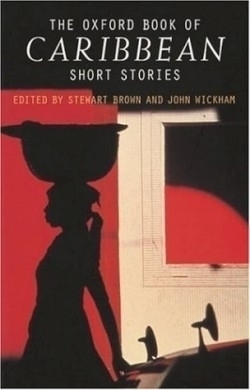The Oxford Book of Caribbean Short Stories
At its spiciest moments The Oxford Book of Caribbean Short Stories displays the ingredients of the best of Caribbean callaloos. Like this popular dish, the collection is a sumptuous stew that includes a little bit of everything from the macabre to the magic realist to the comical. There is a temptation to read these works slowly—that is—to savor each of its entries carefully before digesting them. Yet the impulse to do so battles an equally strong desire to turn the pages quickly in order to relish soon the delights of the others. A book, indeed, as palatable as it is sustaining.
There is no clear connection between the many voices and themes that make their way into this anthology. Nor should there be. “Each,” note its editors, “is included because it is a fine story…and it is that very diversity of styles, voices and concerns that characterize the contemporary Caribbean short story.” The anthology, therefore, showcases some of the finest Caribbean writing of the twentieth century, while demonstrating that the “all-a-we-is one” Caribbean literary tradition is problematic.” Yes, there are similarities in styles and subject matter. Stories such as Canada Geese & Apple Chatney and Mammie’s Form at the Post Office, by Guyanese and Montserratan writers respectively, explore the difficulties of living abroad while attempting to retain cultural ties. The Haitian writer, Rene Depestre, and Cuban writer, Antonio Benitez Rojo offer sensually evocative tales in Rosena on the Mountain and Buried Statues. Despite the thematic and stylistic similarities in a handful of these pieces, it is clear that each writer has a unique vision, and though the stories are primarily set in the islands from which their writers hail, there is a sampling of the Caribbean communities in England and North America. Moreover, in works such as Dream Haiti, Barbadian Kamau Brathwaite celebrates a pan-Caribbean perspective in his haunting piece.
Together, each of the collection’s pieces demonstrates the editors’ thoughtful and intricate braiding of the multiple sensibilities that characterize Caribbean writing and consciousness. Yes, there is the anticipated tale of poverty, of colonialism and of superstition. Each yarn, however, is interspersed with details of love, child raising, suffering and hope—the ingredients that make them universal. There is the ribald humor of Eye Openers, reminiscent of Chaucer’s Canterbury tales, the magic realism of Journey to the Seed, the heart wrenching, Nineteen Thirty-Seven, the elegiac, To Da-Duh, in Memoriam and the insouciant, The Cricket Match. Each story, as the editors stress, “offers both an account of a particular Caribbean experience and speaks to a wider notion of ‘the contemporary world.’” It is easy to recognize oneself and others in all of these pieces. None is so foreign or removed from day-to-day existence that one remains unaffected. Its compilation of authors allows the reader to traverse the entire region to hear the multitude of West Indian/Caribbean/Antillian voices, experience their languages, worldviews, cultural nuances and diverse ethnic backgrounds while remaining in touch with ones own experiences.
As short story collections go, the stories in The Oxford Book of Caribbean Short Stories are as diverse as the writers and worldviews that inform them. The literature lover (Caribbean or otherwise) can only revel in the masterful construction of each story while enjoying their narrative charms. A list for wider reading highlights other examples of fine Caribbean short fiction. Even more comprehensive than Stewart Brown’s previously edited anthology, Caribbean New Wave, the collection will enchant readers for years to come. The Caribbean short story “will not be contained in any convenient, linguistic, geographical or thematic definition,” the editors of this collection say. With its pleasing fare, one could definitely nibble more.
Disclosure: This article is not an endorsement, but a review. The publisher of this book provided free copies of the book to have their book reviewed by a professional reviewer. No fee was paid by the publisher for this review. Foreword Reviews only recommends books that we love. Foreword Magazine, Inc. is disclosing this in accordance with the Federal Trade Commission’s 16 CFR, Part 255.

